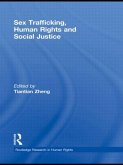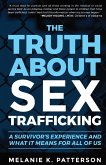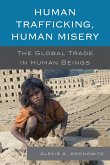Malaysia has criminalised sex work. However, its geographic location, porous borders and proximity to major trade and traffic routes have ensured a growth in sex trafficking activities. As a result, the 'United Nations Office on Drugs and Crime' and the 'United States Trafficking in Persons Report' have categorised Malaysia as a destination, transit and source point for sex trafficking in Asia. In response to such categorisations, Malaysia has ratified the (Palermo) 'Protocol to Prevent, Suppress and Punish Trafficking in Persons Especially Women and Children' and structured its anti-trafficking laws around prosecution, protection and prevention (referred to as the '3P' policy). This thesis shows that the enforcement of victim-protection policies is carried out in contradictory ways in Malaysia. Trafficked women are portrayed as victims in need of care and protection, but also as individuals who have violated immigration laws and engaged in 'immoral' acts. This results in state practices that (re)victimise women through policing, immigration and court processes which are often deeply stressful, traumatising and violent. Punitive practices - including 'state and rescue' operations and long-term detention - have been legitimised and branded as 'victim protection'. In this context, the thesis argues that current policies and practices represent a continuing form of violence against migrant women in Malaysia.








